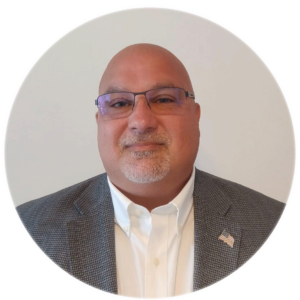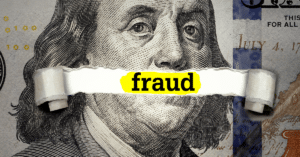As healthcare professionals, your commitment to integrity in your work is the foundation of the healthcare system, especially in environments prone to oversight like nursing homes, skilled nursing facilities, and assisted living facilities.
With the rising instances of healthcare fraud, it’s crucial to understand not just what you should do, but also what you should avoid. This article details specific actions that constitute medical billing fraud, and why steering clear of these practices is essential for maintaining the ethical standards of healthcare.
Common Medical Billing Practices to Avoid
While there are several actions that can be considered fraud, there are a few that are more common in skilled nursing facilities. Have you been asked to do any of the following?
- Double Billing: This occurs when a service is billed twice. It’s essential to carefully track billed services to ensure that each service is charged only once to avoid accusations of fraud.
- Unbundling: In medical billing, some procedures are meant to be billed as a single comprehensive charge. Separating these into individual charges, known as unbundling, can artificially inflate a patient’s bill, which constitutes fraud.
- Upcoding: Charging for a more expensive service than the one provided is unethical and illegal. Always ensure that the billing codes match the services delivered.
- Higher Dosage Billing: Similar to upcoding services, charging for a higher dosage of medication than was administered skews medical records and billing, leading to fraudulent claims.
- Phantom Billing: Billing for services not rendered is a clear and direct form of fraud. Maintaining accurate and honest records prevents this kind of fraudulent activity.
- Kickbacks: Receiving payments or gifts and/ or anything of value in exchange for patient referrals corrupts medical decision-making and violates federal anti-kickback statutes.
- Misuse of Modifier 59: This modifier is used to indicate that a procedure is separate and distinct from others billed on the same day. Misusing this modifier to separate procedures that should be bundled is fraudulent, because it inflates medical bills.
- Coding Outpatient as Inpatient: This practice involves billing outpatient services as if they were inpatient, significantly increasing charges unfairly. Always code services accurately according to the patient’s status.
Steps for Identifying and Documenting Fraud
If you have been asked to perform any of these medical billing functions, or if you suspect these fraudulent activities are taking place in your skilled nursing facility, doctor’s office, or hospital, please take these steps:
- Reach out to a Whistleblower Attorney: Consulting with a whistleblower attorney specialized in healthcare fraud can provide you with the necessary guidance and protection.
- Gather Evidence: Document all relevant information securely and comprehensively. This includes dates, amounts billed, services provided, and any correspondence that seems suspicious.
- File a Claim: With your attorney’s help, file a whistleblower claim under the appropriate legal statutes.
- The Investigation: After filing, the authorities will investigate the claim. Your attorney will work with you throughout this process to ensure your case is presented effectively.
- Reward Potential: If your case results in a financial recovery, you could receive up to 30% of the recovered funds, potentially leading to a significant financial reward.
Impacts of Medical Billing Fraud on the Healthcare System
Healthcare fraud is a serious issue with widespread repercussions. It not only undermines the integrity of the healthcare system, but also has far-reaching impacts on costs and resources. Below are some of the critical consequences of fraudulent activities in the healthcare sector:
- Misuse of Taxpayer Dollars: Fraudulent activities drain funds that could otherwise be used for legitimate patient care, affecting the entire healthcare funding ecosystem.
- Loss of Integrity and Reputation: Facilities caught in fraudulent activities suffer reputational damage, which can be devastating and long-lasting.
- Increased Healthcare Costs: Fraud contributes to the rising cost of healthcare, impacting everyone by making services less affordable and accessible.
Help Expose Nursing Home Medicare Fraud
Nursing home fraud is a serious issue that impacts not only the financial integrity of healthcare systems, but also the quality of care patients receive. By understanding what not to do in medical billing and taking proactive steps to report suspected fraud, you contribute to a more ethical healthcare environment.
If you’re a healthcare professional witnessing questionable billing practices, or if you’re being pressured into committing fraud, contact DJO for a Free Confidential Case Review. As a contingency law firm, we are dedicated to supporting you every step of the way—because we only succeed when you do. Let’s work together to uphold the standards of healthcare and protect those who rely on us every day.

authored by Christopher J. Piacentile
Director of Investigations DJO Whistleblower Law Group


